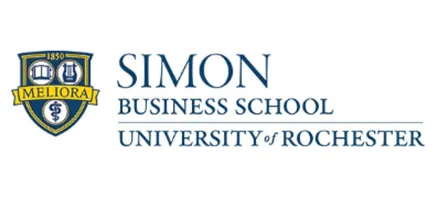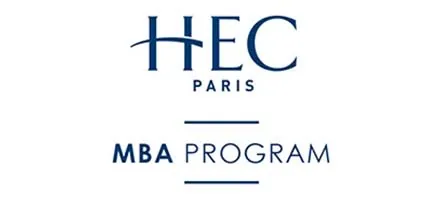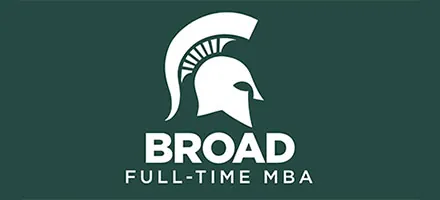
In a survey done in collaboration with the University of Miami Patti and Allan Herbert Business School, some 75 business school deans identified the major threats to business education and how they were responding to the challenges
Business school deans are facing a bewildering array of challenges today. They are juggling a range of concerns, balancing academic excellence, student outcomes, financial sustainability, and industry relevance. Keeping some up at night are the uncertainty over government policy along with rankings and their impact on a school’s reputation.
But the number one threat to business education, according to a new survey of business school deans, is declining demand due to the coming enrollment cliff. More than a third—34%—of the deans say the expected sharp decline in the number of traditional college-aged students due to declining birth rates and demographic shifts is the major threat to business education today.
Not far behind as a major vulnerability is competition from alternative education models, including online certifications and bootcamps, identified as a significant threat by 26%. Declining enrollment due to high tuition costs was next, with 24% naming this issue as the top challenge.
Rounding out the top five threats are global economic uncertainties impacting international student enrollment (23%) and reduced employer demand for traditional MBA degrees (18%).
SURVEY HIGHLIGHTS THE MANY CHALLENGES BUSINESS SCHOOLS FACE
In a survey done in collaboration with the University of Miami Patti and Allan Herbert Business School, some 75 business school deans responded from all over the world. They were surveyed online in the field from early February until mid-March. In addition to the survey questions, deans were asked to amplify their perspectives in a commentary section that guaranteed their anonymity.
The results highlight the many challenges business education leaders are facing and how they are dealing with those headwinds. It’s particularly relevant at a time of increased debate about the role of higher education in society, the return on investment of a business degree, and the relevance of what students are taught as artificial intelligence begins to disrupt markets.
“Like my peers, we at Miami Herbert recognize these challenges—but we’re transforming them into exciting opportunities by leveraging our unique location in Miami,” said Paul A. Pavlou, dean of Miami Herbert. “Through our 2025-29 Strategic Plan, called ‘Moonshot Project,’ we personalize each student’s journey and ensure lifelong career success with experiential learning, enabled by strong industry partnerships in Miami and beyond.”
MIAMI HERBERT’S ‘MOONSHOT PROJECT’: A BOLD VISION FOR THE FUTURE OF BUSINESS EDUCATION

Paul A. Pavlou, dean of Miami Herbert
While developed before this survey, Miami Herbert’s 2025–2029 strategic plan, the Moonshot Project, aligns closely with many of the challenges and opportunities business school deans have identified. Designed to propel Miami Herbert into the ranks of the world’s top 20 business schools, the plan is rooted in bold, future-focused priorities: industry-relevant research, AI-integrated curricula, laser focus on career success with immersive industry engagement, and lifelong learning through executive education. The Moonshot Project underscores Miami Herbert’s commitment to personalized education and preparing principled leaders who are ready to lead from day one.
Those forward-looking strategies are occurring in the context of a climate of massive policy and attitudinal changes. Many universities, from Cornell to Duke, have put in place hiring freezes and other restrictions on spending. Government interference and federal policy uncertainty was cited as major challenges by several deans because of what one business school leader noted was his “campus dependence on business school revenue.”
“Uncertainty is tough to navigate,” says one dean. “It is impacting students’ decisions about whether and where to study as well as our ability to invest in new programs, modalities, and technologies.”
‘WE LOST THE TRUST AND CONFIDENCE OF THOSE WE SERVE’
Another dean concedes that educators have lost the trust and confidence of the public. “It is an unprecedented period of upheaval in higher education,” explains another business school dean. “We need to work together to re-establish the trust of the public and create a deeper understanding of our role and value in modern society. Somewhere along the way we lost the trust and confidence of those we serve. We must find a way to remedy this unfortunate truth.”
Several other leaders believe a pro-active approach is essential. “We need to create a collective voice to speak for higher education in business, especially in times of uncertainty for outside issues beyond market change.”
Coupled with what a dean believed is the “declining respect for the value of a college education,” the regulatory uncertainty could pose a major new issue for business education.
HOW BUSINESS SCHOOLS ARE RESPONDING TO THEIR CHALLENGES
The rapid changes in Washington, D.C., have become a considerable worry for business school deans inside and outside the U.S. Some 86% of them said that uncertainty in visa and immigration policies was having an impact on their schools. About 65% identified potential changes in optional practical training (OPT) policies that allow international graduates to work an additional two years in the U.S.
Some 61% of the deans said they are being impacted by cuts to research funding, while 57% said that shifts in diversity and inclusion mandates also were having an impact. A dean of an international school expressed concern over the abolishment of government funding abroad. “We have projects funded by USAID to understand and study the conditions of vulnerable people, particularly migrants, and those funds have been withdrawn after having people hired and having started the projects,”explains the dean.
How are schools responding to these challenges? To create new revenue streams for their schools, deans are pursuing a number of strategies (see chart below). More than eight out of ten deans say they are expanding online and hybrid programs, while 68% are launching certificate programs. New corporate partnerships are being forged by 64% of the deans, while another 61% are introducing interdisciplinary programs with other schools and department in their universities.
MORE SCHOOLS FORGING DEEPER CONNECTIONS WITH INDUSTRY
Offering courses and certificates that can be stacked into a degree program is a strategy being pursued by 47% of the business school deans. Slightly more than a third of (36.5%) say they are partnering with global institutions to expand their reach, while far fewer schools (14.9%) are planning to open satellite campuses to attract new students.
Beyond innovations for growth, the deans are also taking other steps to ensure their relevance in the future (see chart below). Roughly 42% said they were enhancing connections with industry to make sure they were exposing students to “practical learning outcomes.”
Another 39% said they were innovating programs to meet such emerging trends as artificial intelligence, sustainability and ESG, while one in four, or 24%, said they were expanding accessibility through online and hybrid learning options.
DEANS REMAIN UPBEAT ABOUT THE FUTURE OF UNDERGRADUATE BUSINESS
Despite the current challenges, deans were fairly optimistic about continued growth in undergraduate business education. Some 79% of the deans responding to the survey said that current demand for their undergraduate business programs was increasing, with 39% describing the increase as significant and 40% saying their schools were experiencing a slight increase (see chart below). Only 8% of the deans say undergraduate demand is falling, with a mere 1% describing the decline as significant.
The deans attribute the strength of the undergraduate business market to job outcomes. “Students and parents recognize the value of a business education,” says one respondent. Adds another: “Families and prospective students focus on employability and ROI, which professional programs such as business, offer.”
Nonetheless, rising tuition rates is causing some parents and their children to reevaluate higher education. “The cost of tuition is leading students to weight career opportunities of a degree even higher than before,” explains one dean.
LESS ENTHUSED ABOUT THEIR GRADUATE PROGRAMS
Business school deans were less enthusiastic about their graduate programs, including the MBA and specialty master’s degrees. Only 8% said that current demand for graduate business programs at their institutions was increasing significantly. Some 32% said demand for increasing slightly, while 27% described the current market for graduate degrees as stable. Some 28% of the respondents say their schools have experienced a slight decline in demand.
“Tuition pressure, saturated markets, decreasing or ending employer sponsorship, and less emphasis on the MBA for career advancement,” explained one dean was the reason why his school saw less interest in graduate management education. “Employers (are) placing less value on MBAs,” echoed another dean.
At least one business school increased its one-year degrees as demand for the MBA has declined. ”The MBA is too expensive and graduates are getting the same jobs as our undergraduates and one-year masters students,” explains one respondent. “The one-year MS is cheaper and prospects are better than with the MBA.”
Deans with a more favorable assessment of the graduate market said they have been able to increase enrollments through curricular innovation, new program design, and a larger variety of specialized masters. One dean noted that his school was able to maintain enrollment “through aggressive marketing and pricing options.”
MOST IMPORTANT EMERGING TREND: ARTIFICIAL INTELLIGENCE
Even so, program innovation is a major focus of business school leadership. Not surprisingly, deans overwhelmingly identified artificial intelligence and technology integration as the most important emerging trend in the next five to ten years. Many schools, including Arizona State, Carnegie Mellon, Rutgers Business School, and Wharton, already offer a major or concentration in AI within their MBA programs. Harvard Business School recently updated an existing course on data science to include a greater emphasis on AI in its required core curriculum for first-year MBA students.
Sure enough, 88% of the deans said AI and tech integration was the top priority for their schools. Some 29% said they were prioritizing lifetime learning and executive education, while 23% identified globalization and international partnerships as top priorities. Some 15% said sustainability and ESG were emerging trends of importance.
Asked what they believe are the most important skills for business school graduates in today’s business environment, the deans put a strong emphasis on soft skills. Some 30% of the respondents said the most important skills were leadership and decision-making, while another 30% identified emotional intelligence and interpersonal skills as critical. A close third with a nearly equal emphasis (29%) said that data analytics and technical skills were most important.
DEANS SAY RANKINGS MOST INFLUENCE HOW THE PUBLIC PERCEIVES QUALITY
Asked which publications were most influential in shaping the perception of other schools’ quality, the deans cited U.S. News’ annual rankings as critical. Some 74% said U.S. News was most influential, followed by the Financial Times (21%), and Poets&Quants (13%). Forbes, which no longer publishes a ranking, was fourth (8%), while The Wall Street Journal (6%) and Princeton Review (4%) brought up the rear.
Rankings obviously loomed large in these opinions. When asked what qualities best inform perceptions of a business school’s quality, more deans cited rankings over any other attribute, including faculty research and thought leadership or program innovation. Four of every ten responding deans believe that rankings and reputation most inform perceptions of a school’s overall quality.
That was followed by employer relationships and placement outcomes, cited first by 31% of the respondents, and alumni success and engagement, reinforced by 28% of the deans. Faculty research came in fourth, cited by 22% of the deans, while program innovation and adaptability was fifth, cited by 16% of the deans as the most important criteria that impacted perceptions of a school’s quality.









